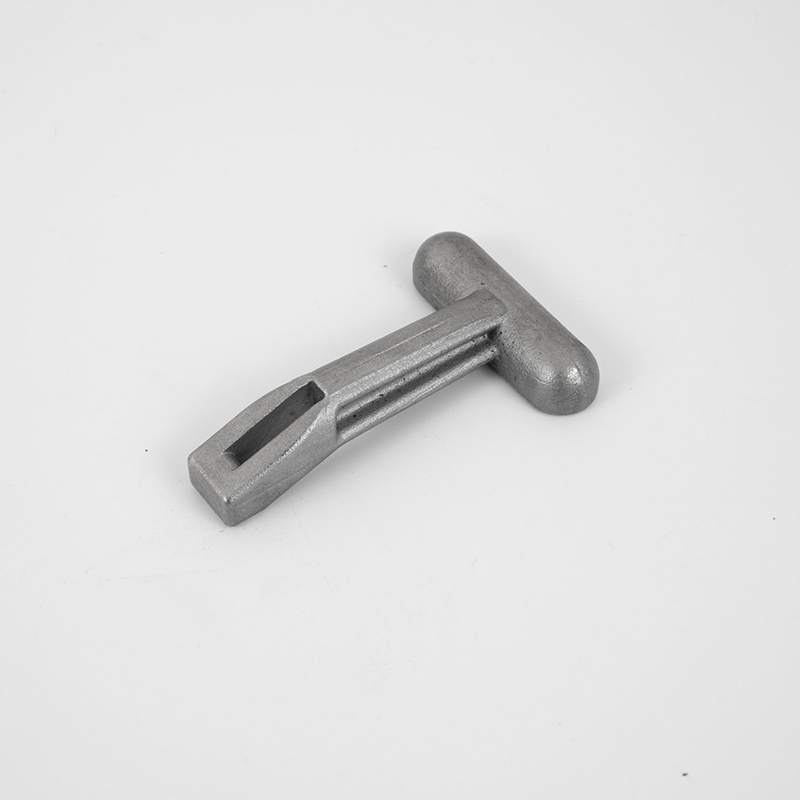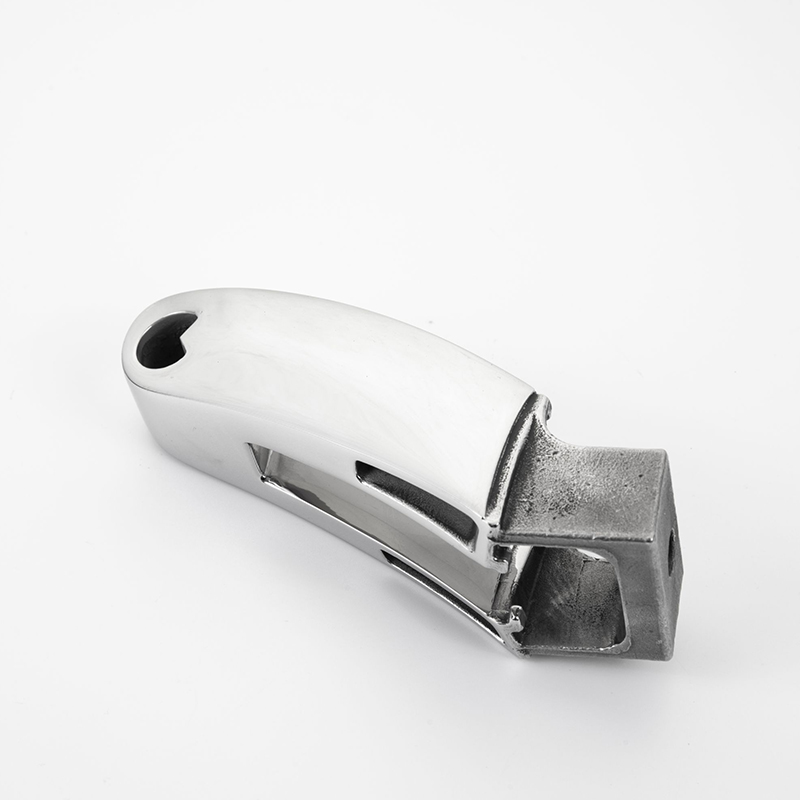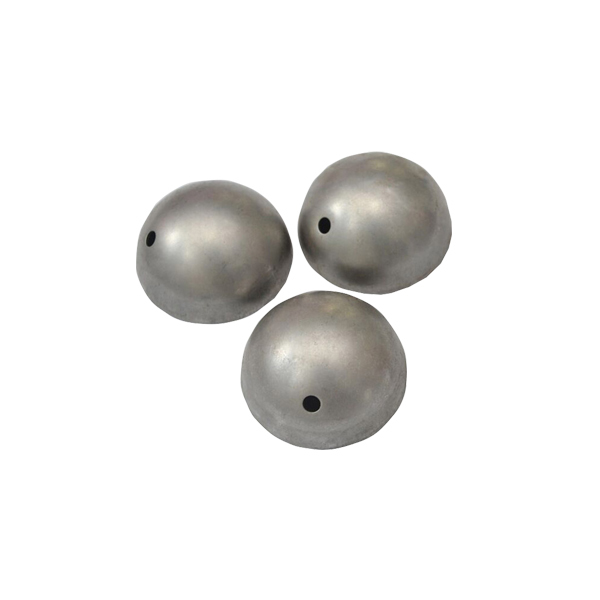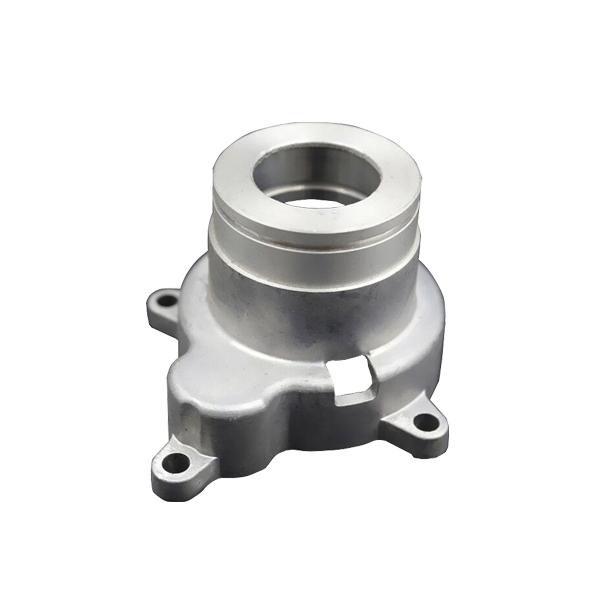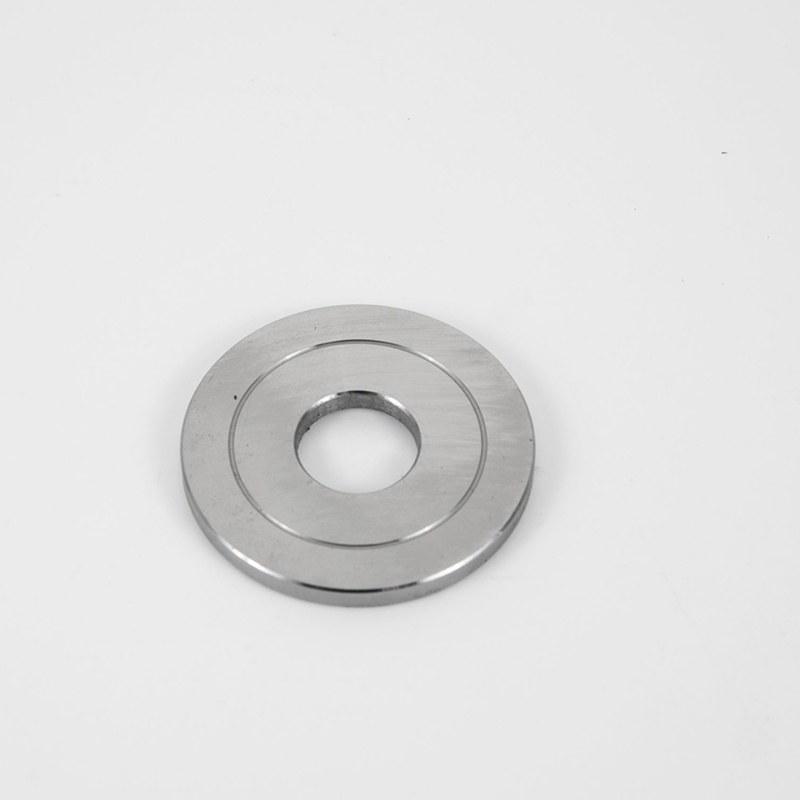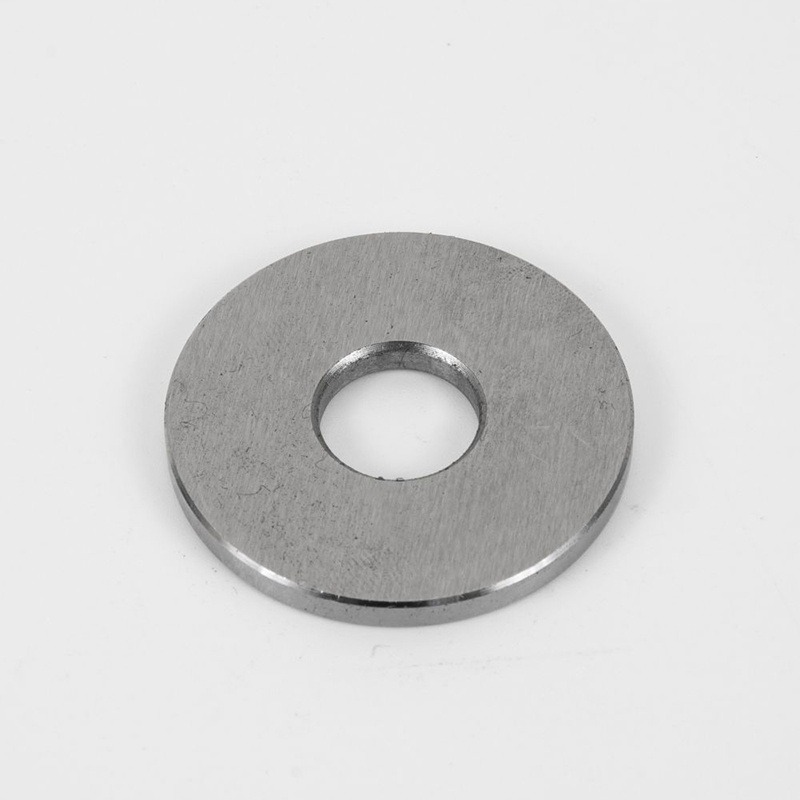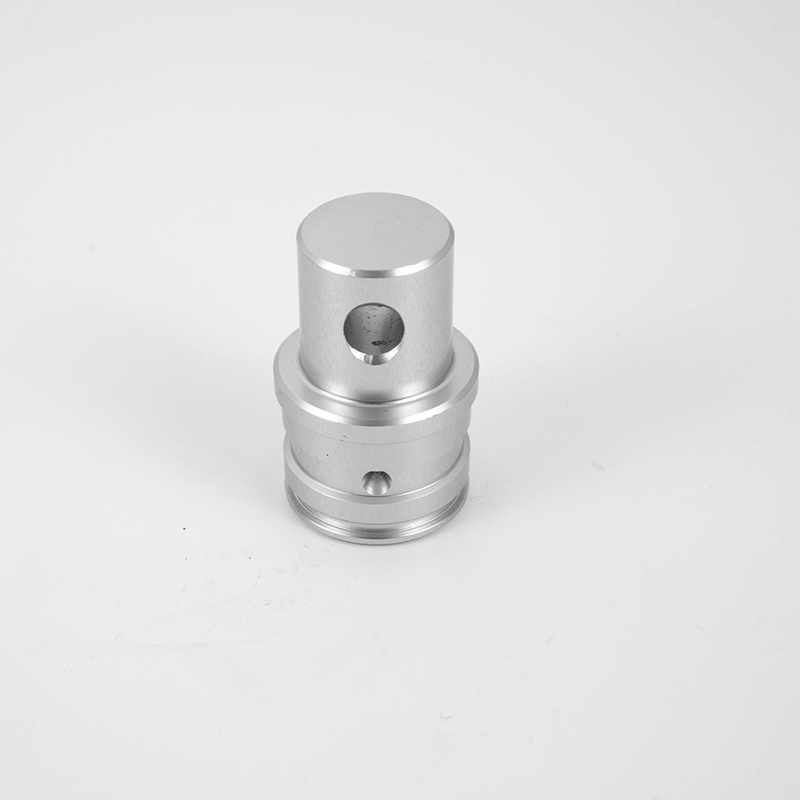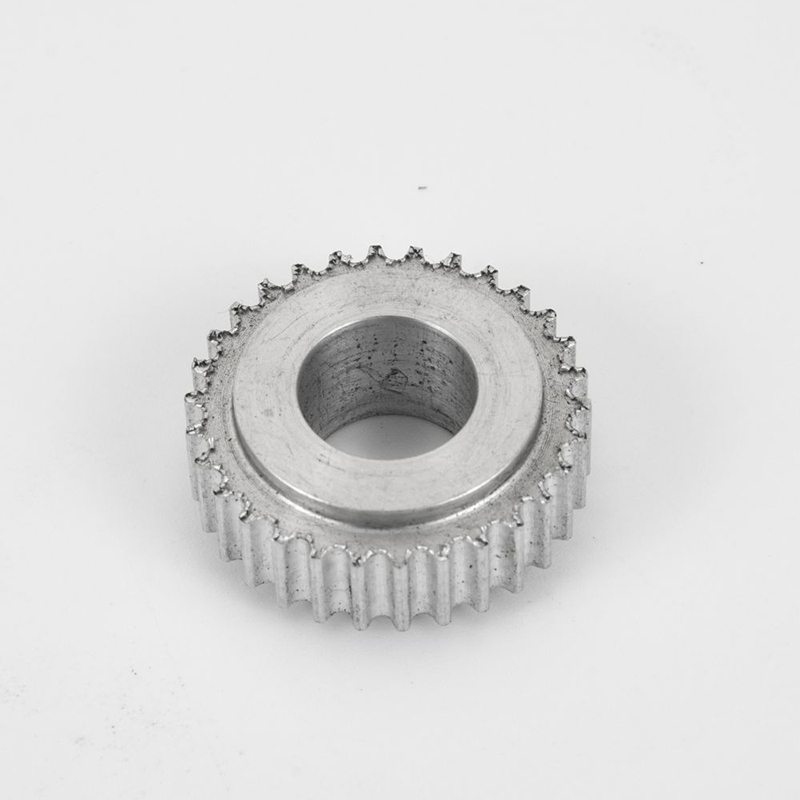Products
Steel CNC Machining
As the professional manufacturer, we would like to provide you high quality Steel CNC Machining. And we will offer you the best after-sale service and timely delivery.Steel CNC machining refers to the process of creating or manufacturing steel components using Computer Numerical Control (CNC) machines. These machines use pre-programmed instructions to control the movements of cutting tools, drills, and milling machines to produce precise and complex steel components.
Send Inquiry
Product Description
What is Steel CNC Machining?
Steel CNC machining is a manufacturing process that involves removing raw material from a steel block using Computer Numerical Control (CNC) machines. CNC machines are automated systems that operate on pre-programmed instructions to control various tools to cut, drill, or mill steel components with precise specifications and tight tolerances.
The steel CNC machining process typically begins with a design for the component, either created using software or a physical prototype. This design is then transformed into a set of instructions that directs the CNC machine to perform specific operations on the steel block, creating the desired shape, size, and finish of the component.
Steel CNC machining requires specialized tools and equipment operated by skilled machinists who understand the properties of steel and the CNC machining process. These components are commonly used in various industries, including aerospace, automotive, medical devices, electronics, defense, and many others, where high strength, precision, and consistency are essential components of high-quality products.
Steel CNC machining is a more efficient and cost-effective process compared to traditional methods of manufacturing steel components, such as forging and casting. It allows for the production of complex steel components with tight tolerances, high precision, and unique geometries that cannot be achieved using conventional machining methods.
The steel CNC machining process typically begins with a design for the component, either created using software or a physical prototype. This design is then transformed into a set of instructions that directs the CNC machine to perform specific operations on the steel block, creating the desired shape, size, and finish of the component.
Steel CNC machining requires specialized tools and equipment operated by skilled machinists who understand the properties of steel and the CNC machining process. These components are commonly used in various industries, including aerospace, automotive, medical devices, electronics, defense, and many others, where high strength, precision, and consistency are essential components of high-quality products.
Steel CNC machining is a more efficient and cost-effective process compared to traditional methods of manufacturing steel components, such as forging and casting. It allows for the production of complex steel components with tight tolerances, high precision, and unique geometries that cannot be achieved using conventional machining methods.
Why is it Called Steel CNC Machining?
The term "steel CNC machining" refers to the process of using computer numerical control (CNC) machines to manufacture steel components through precision cutting and shaping of raw materials. The process of CNC machining involves the use of advanced computer software and precision engineering to direct the movements of cutting tools and machinery to produce precise and high-quality steel components.
The term "steel" refers to the type of material used in the machining process, which is primarily steel or steel alloys. Steel is an extremely strong and durable material that is widely used in industrial, mechanical, and other applications. Steel components are regularly machined to create precise and complex geometries that cannot be achieved through traditional manufacturing processes.
The term "CNC" refers to the use of computer software to program and control machines that cut and shape steel. CNC machines are highly automated, and their movements are pre-determined by software instructions, making them ideal for producing high-precision steel parts with tight tolerances.
Overall, the term "steel CNC machining" describes the advanced process of using computer-controlled machines to produce high-precision steel components with exceptional accuracy and reliability. The process is popular in various industries because of its ability to produce steel parts with complex geometries, tight tolerances, and high consistency.
The term "steel" refers to the type of material used in the machining process, which is primarily steel or steel alloys. Steel is an extremely strong and durable material that is widely used in industrial, mechanical, and other applications. Steel components are regularly machined to create precise and complex geometries that cannot be achieved through traditional manufacturing processes.
The term "CNC" refers to the use of computer software to program and control machines that cut and shape steel. CNC machines are highly automated, and their movements are pre-determined by software instructions, making them ideal for producing high-precision steel parts with tight tolerances.
Overall, the term "steel CNC machining" describes the advanced process of using computer-controlled machines to produce high-precision steel components with exceptional accuracy and reliability. The process is popular in various industries because of its ability to produce steel parts with complex geometries, tight tolerances, and high consistency.
What is the Steel CNC Machining Process?
The steel CNC machining process is a complex process that uses computer software to program and control machines to cut and shape steel into a desired shape, size, and finish. The steps of the process typically include:
Design and Programming: The first step in the steel CNC machining process is to create a design for the component using computer-aided design (CAD) software. The design is then translated into a set of instructions that control the movement of the CNC machine.
Material Selection: The appropriate steel material for the component being machined is selected based on its mechanical properties, such as strength, durability, and corrosion resistance.
Cutting and Shaping: The steel material is cut and shaped using a series of specialized CNC machines, which are programmed to move cutting tools, drills, and milling machines in specific patterns and directions to remove excess material from the steel block.
Finishing: Once the desired shape and size of the component are achieved, it undergoes finishing processes, such as polishing or painting, to give it the desired surface finish.
Quality Inspection: The finished component is inspected to ensure that it meets the specified tolerances and quality requirements before being sent to further processing or assembly.
The steel CNC machining process requires advanced equipment, skilled operators, and strict quality control measures to produce precise and complex steel components efficiently and cost-effectively.
Design and Programming: The first step in the steel CNC machining process is to create a design for the component using computer-aided design (CAD) software. The design is then translated into a set of instructions that control the movement of the CNC machine.
Material Selection: The appropriate steel material for the component being machined is selected based on its mechanical properties, such as strength, durability, and corrosion resistance.
Cutting and Shaping: The steel material is cut and shaped using a series of specialized CNC machines, which are programmed to move cutting tools, drills, and milling machines in specific patterns and directions to remove excess material from the steel block.
Finishing: Once the desired shape and size of the component are achieved, it undergoes finishing processes, such as polishing or painting, to give it the desired surface finish.
Quality Inspection: The finished component is inspected to ensure that it meets the specified tolerances and quality requirements before being sent to further processing or assembly.
The steel CNC machining process requires advanced equipment, skilled operators, and strict quality control measures to produce precise and complex steel components efficiently and cost-effectively.
What Materials can be Steel CNC Machining?
The term "steel CNC machining" generally refers to the process of machining steel materials to create precise components with tight tolerances. However, CNC machining can also be performed on a wide range of other metals and alloys.
Some of the commonly used materials for steel CNC machining include:
Stainless Steel: This is a commonly used material for steel CNC machining due to its strength, durability, and corrosion resistance.
Aluminum: This material is lightweight, strong, and easy to machine, making it an excellent choice for CNC machining.
Titanium: This material is strong, corrosion-resistant, and lightweight, making it an ideal choice for aerospace and medical industries.
Copper: This material is far softer than steel but is still used in steel CNC machining applications due to its high electrical conductivity.
Brass: This material is another softer option that is easy to machine and commonly used in product design and prototyping applications.
The materials used in steel CNC machining can be selected based on their mechanical and thermal properties, strength, durability, ease of machining, and other factors specific to the intended application.
Some of the commonly used materials for steel CNC machining include:
Stainless Steel: This is a commonly used material for steel CNC machining due to its strength, durability, and corrosion resistance.
Aluminum: This material is lightweight, strong, and easy to machine, making it an excellent choice for CNC machining.
Titanium: This material is strong, corrosion-resistant, and lightweight, making it an ideal choice for aerospace and medical industries.
Copper: This material is far softer than steel but is still used in steel CNC machining applications due to its high electrical conductivity.
Brass: This material is another softer option that is easy to machine and commonly used in product design and prototyping applications.
The materials used in steel CNC machining can be selected based on their mechanical and thermal properties, strength, durability, ease of machining, and other factors specific to the intended application.
What is Steel CNC Machining Used For?
Steel CNC machining is widely used in various industries due to its ability to produce high-quality, complex components with tight tolerances, precise specifications, and unique geometries that cannot be achieved through traditional manufacturing processes. Some of the most common applications of steel CNC machining include:
Aerospace: The aerospace industry utilizes steel CNC machined components in the manufacturing of aircraft and space vehicles, including parts like engine components, wing attachments, and landing gears.
Automotive: The automotive industry also uses steel CNC machined components, including engine components, transmission parts, and suspensions.
Medical: The medical industry uses precision steel components in the manufacturing of various medical devices and implants, including surgical instruments, orthopedic implants, and diagnostic equipment.
Defense: Defense technologies use steel CNC machined components in the manufacturing of equipment and vehicles.
Electronics: The electronics industry uses precision steel components in the manufacturing of electronic devices, including computer components, control systems, and communication equipment.
Industrial equipment and machinery: Steel CNC machining is used in the manufacturing of machinery and equipment parts used in a wide range of industries, such as mining, oil and gas, and construction.
Overall, steel CNC machining is used in any application that requires the manufacturing of high-precision steel components with tight tolerances and unique geometries. The process is ideal for creating complex components used in industries that require high-strength, durability, and accuracy.
Aerospace: The aerospace industry utilizes steel CNC machined components in the manufacturing of aircraft and space vehicles, including parts like engine components, wing attachments, and landing gears.
Automotive: The automotive industry also uses steel CNC machined components, including engine components, transmission parts, and suspensions.
Medical: The medical industry uses precision steel components in the manufacturing of various medical devices and implants, including surgical instruments, orthopedic implants, and diagnostic equipment.
Defense: Defense technologies use steel CNC machined components in the manufacturing of equipment and vehicles.
Electronics: The electronics industry uses precision steel components in the manufacturing of electronic devices, including computer components, control systems, and communication equipment.
Industrial equipment and machinery: Steel CNC machining is used in the manufacturing of machinery and equipment parts used in a wide range of industries, such as mining, oil and gas, and construction.
Overall, steel CNC machining is used in any application that requires the manufacturing of high-precision steel components with tight tolerances and unique geometries. The process is ideal for creating complex components used in industries that require high-strength, durability, and accuracy.
What are the benefits of Steel CNC Machining?
There are several benefits associated with steel CNC machining, including:
High Precision and Accuracy: CNC machining allows for the precise, accurate reproduction of complex geometries and tight tolerance requirements for the production of high-quality steel components.
Cost-Effective: CNC machining can be more cost-effective for the production of prototype or low-volume parts, speeding up production while reducing material waste compared to traditional casting or forging methods.
Flexibility: CNC machines can produce a wide variety of steel components for different applications and industries, and it is easy to modify the programming for new designs and features.
Production speed: Steel components produced through CNC machining processes are completed quickly, reducing lead times for urgent production needs.
Consistency: CNC machining produces steel components with consistent, precise, and repeatable results, ensuring high-quality output for consistent performance in the final product.
Greater range of materials: Steel CNC machining can be used to produce components from a wider range of materials than traditional methods, including harder or more complex alloys that require precision cutting.
Overall, the benefits of steel CNC machining make it an important and versatile process for creating high-quality steel components for almost any industrial application. The method offers high precision, accuracy, flexibility, speed, and cost-effectiveness, making it an ideal candidate for producing steel components for a wide range of industries.
High Precision and Accuracy: CNC machining allows for the precise, accurate reproduction of complex geometries and tight tolerance requirements for the production of high-quality steel components.
Cost-Effective: CNC machining can be more cost-effective for the production of prototype or low-volume parts, speeding up production while reducing material waste compared to traditional casting or forging methods.
Flexibility: CNC machines can produce a wide variety of steel components for different applications and industries, and it is easy to modify the programming for new designs and features.
Production speed: Steel components produced through CNC machining processes are completed quickly, reducing lead times for urgent production needs.
Consistency: CNC machining produces steel components with consistent, precise, and repeatable results, ensuring high-quality output for consistent performance in the final product.
Greater range of materials: Steel CNC machining can be used to produce components from a wider range of materials than traditional methods, including harder or more complex alloys that require precision cutting.
Overall, the benefits of steel CNC machining make it an important and versatile process for creating high-quality steel components for almost any industrial application. The method offers high precision, accuracy, flexibility, speed, and cost-effectiveness, making it an ideal candidate for producing steel components for a wide range of industries.
Product details


Hot Tags: Steel CNC Machining, China, Manufacturer, Supplier, Factory, Customized, Made in China
Related Category
Investment Casting
Shell Mold Sand Casting
Lost Foam Casting
Water Glass Casting
Lost Wax Casting
Die Casting
Precision Machining
CNC Machining
Turning Machining
Machining Workshop
Send Inquiry
Please Feel free to give your inquiry in the form below. We will reply you in 24 hours.
